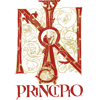 I was wondering how I was supposed to start telling my own story into the Catholic Church, a journey that is still going on and will continue until the last day determined for me by God.
I was wondering how I was supposed to start telling my own story into the Catholic Church, a journey that is still going on and will continue until the last day determined for me by God.
I suppose the best way to start explaining why I want to join and why I consider the Catholic Church as the true
I was taught that the centre of Christian life was out of the church, and the church was only a place where one is supposed to go to once in a while because his identity was Christian, and excessive church-going was and still is considered to be silly or unneeded. Believing in God was something different from practicing religion, which would include going to liturgy (theia leitourgeia θεία λειτουργεία meaning holy service, which is the Greek word for Mass) and taking the Eucharist (I'm sure you understand that) which in Orthodoxy means taking a leavened bread and wine (I was told that Catholics take unleavened bread and only the priests and clerics are allowed to take wine).
Orthodox tradition also includes lighting a lot of candles and kissing many icons, while leaving money on them (even though in recent times many of the priests have protested against this tradition because when you go to church you don’t want to see crucifixes and icons of saints cluttered with money. The other explanation was that this was only a part of the pagan traditions which haven’t died out in the mentality of the people. Fortunately for me I have only seen other people practicing more bizarre traditions than this like slaughtering lambs in the church yard or slaughtering and throwing lambs and other animals into the foundations of new houses or buildings. I’m sure you’ll find this bizarre but many priests allow it, because usually after the throwing of the so-called “kurban” (meaning offering (remember Abraham’s offering?) and nowadays it’s usually practiced by Muslims) the priests also blesses the foundation so that the house would be blessed by God. (Thank God – Deus gratia, we’ve never practiced any of this in my family). Drinking holy water has always been something that we were taught we should do. Even washing with holy water is practiced to heal some illnesses.
When we talk about holiday traditions there is much more than Easter bunnies and turkey. Christmas for example is celebrated after New Year’s (on January 7th) and before Christmas the Orthodox Church still practices a fast (I’ll talk about the fasts a bit later in this post). New Year’s Eve is something that is celebrated more than Christmas. People tend to overeat and drink and then go to the Christmas service (liturgy) and some of them even take the Eucharist even though they are not actually prepared for it. Taking the Eucharist in the Orthodox tradition is conditioned by a fast (which usually lasts for forty days but usually people tend to take it after fasting for one week). What I mind most about the Orthodox way of fasting is that people don’t realize that fasting is something that is more spiritual than physical. You can’t distinguish between someone who fasts and the one who doesn’t, first and foremost because you can hear foul language from both of them (especially when they drive) and then because many of those new-age believers (who detested religion but now are devout Christians) overdo many things and it all looks like a great travesty rather than something spiritual. The physical conditions of Orthodox fasting divide fasts into “oil fasts” and “oil-less fasts” (I know these words don’t really fit English, but I thought it would be nicer to use them as they are the literal translations of the words in my native language). Oil fasts are fasts in which one can eat food prepared with oil, but not meat, while the oil-less fasts mean that you mustn’t use oil in your food (this excludes olives as a source for oil, dairy and of course meat, so basically you can only eat some bread, boiled beans or fruit throughout the day and lots of black coffee or teaJ). Even though the Church does not really care about whether you fast properly it gives some appeals to the people not to forget the aim of the fasts, which is not really respected by the people.
And one day, I said “This is something I don’t understand! Religion must be something more than going to church and lighting candles for the living and the dead once in a while.” At this moment my initial “Pax in Anima” (Peace of the Soul) started to rebel. My distress and curiosity opened the door for the question: “Am I on the right path?”
What I got as an answer was very simple - NO...